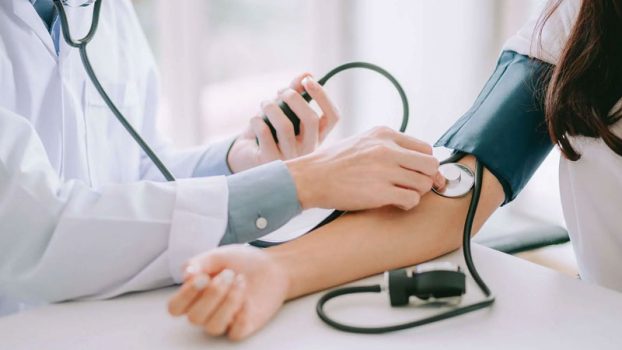Hypertension, commonly known as High Blood Pressure, refers to a condition wherein the pressure against the walls of the blood vessels is consistently higher than normal. It is a dangerous condition to experience as many a times, the patient may not even know what is wrong in the body, but the damage can be fatal. There are two commonly known types of hypertensions, namely, Primary Hypertension and Secondary Hypertension. Primary hypertension, or primary high blood pressure, often occurs due to age as well as poor lifestyle habits. Secondary hypertension or high blood pressure, on the other hand, occurs as a result of an underlying medical condition or as a side effect of certain medications.
Although hypertension can be caused by various reasons ranging from unhealthy lifestyle habits to even underlying medical conditions, you are more likely to be at risk of developing it if you happen to fall into any of the following categories:
- You have a family history of high blood pressure, diabetes and/or cardiovascular conditions
- You are overweight
- You are over the age of 50
- You are not getting enough exercise
- You are a heavy drinker or smoker
- You are eating foods that are high in sodium
Hypertension is a serious condition which requires immediate medical attention. Failure to do so can result in fatal damage to the body, including:
- Stroke
- Heart attack
- Kidney issues/failure
- Complications during pregnancy
- Eye damage/problems
- Vascular dementia
- Peripheral vascular diseases
What makes hypertension all the more fatal, is the fact that it often exhibits little to no symptoms. The only way to identify it is to have healthcare providers check your blood pressure to note any discrepancies or exponential changes.
Diagnosis and Treatment
Since hypertension does not exhibit any symptoms, diagnosis can only be made through thorough checking of blood pressure by the doctor. If consistently high readings are observed after a few check-ups, you will be diagnosed with hypertension.
As for treatment, you will be advised to follow various steps and take certain medications (if any) to keep your high blood pressure in check. Some common steps include:
- Checking your blood pressure regularly to observe discrepancies if any
- Eating a healthy and balanced meal, low in sodium and fat
- Maintaining a healthy lifestyle and weight
- Limiting or avoiding alcohol intake
- Being more physically active
- Avoiding smoking
- Managing anger and stress
Along with these steps, you may also be prescribed medications such as Angiotensin-converting enzyme inhibitors, Angiotensin II receptor blockers, Calcium channel blockers, or Diuretics, to help keep the high blood pressure under control.
Prevention and Remedies
Hypertension can be prevented to a great extent by following simple lifestyle habits that can reduce your chances of developing high blood pressure. Some habits include:
- Eating healthy, balanced meals
- Maintaining a healthy weight
- Staying physically active
- Cutting down on salt and fat intake
- Limiting alcohol intake
- Quitting smoking





